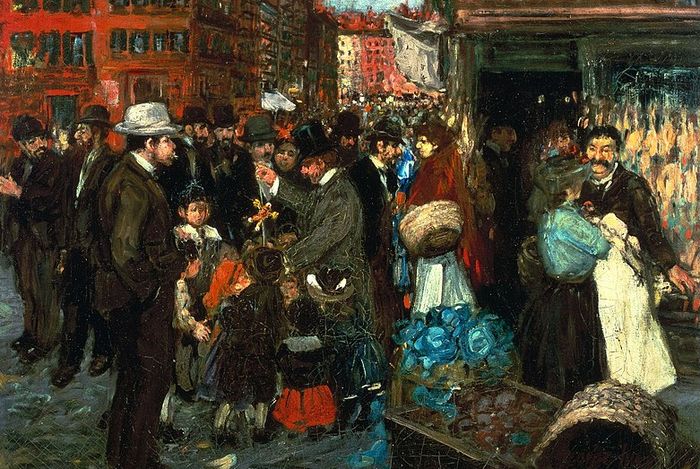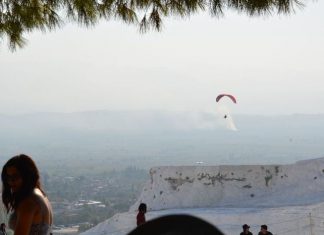For several years thereafter then he was an odd figure in the sun anti rain, on dusty roads and muddy ones, encountered occasionally in strange and unexpected places, pursuing his endless search. Under nourishment, after a time, although the neighbors and those who knew his history gladly contributed from their store, affected his body; for he walked much and ate little. The longer he roamed the public high way in this manner, the deeper became his strange hallucination; and finding it harder and harder to return from his more and more distant pilgrimages, he finally began taking a few utensils with him from hil home, making a small package of them, in order that he might not be compelled to return.
Pierced hole
In an old tin coffee-pot of large size he placed a small tin cup, a knife, fork, and spoon, some salt and pepper, and to the outside of it, by a string forced through a pierced hole, he fastened a plate, which could be released, and which was his woodland table.
It was no trouble for him to secure the little food that he needed, and with a strange, almost religious dignity, he had no hesitation in asking for that much. By degrees his hair became longer and longer, his once black hat became an earthen brown, and his clothes threadbare and dusty.
For all of three years he walked, and none knew how wide were his perambulations, nor how he survived the storms and cold. They could not see him, with homely rural understanding and forethought, sheltering himself in haycocks, or by the sides of cattle, whose warm bodies protected him from the cold, and whose dull understandings were not opposed to his harmless presence. Overhanging rocks and trees kept him at times from the rain, and a friendly hay-loft or corn-crib was not above his humble consideration.
The involute progression of hallucination is strange. From asking at doors and being constantly rebuffed or denied, he finally came to the conclusion that although his Phcebe might not be in any of the houses at the doors of which he inquired, she might nevertheless be within the sound of his voice. And so, from patient inquiry, he began to call sad, occasional cries, that ever and anon waked the quiet landscapes and ragged hill regions, and set to echoing his thin “O-o-o Phoebe! O-o-o Phoebe!” It had a pathetic, albeit insane, ring, and many a farmer of plowboy came to know it even from afar and say, “There goes old Reifsneider.”
Read More about Ibn Battuta part 19








